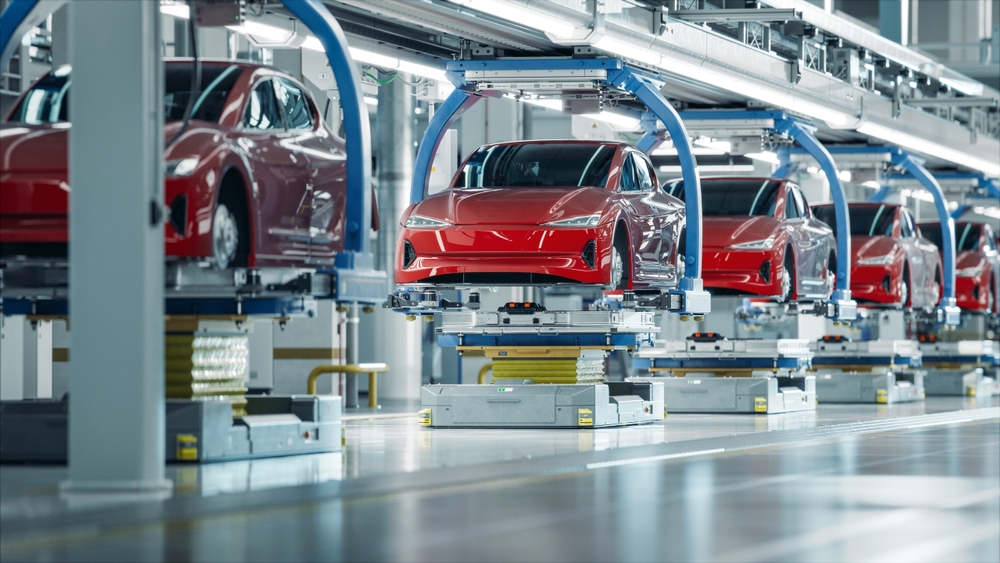Title: Legal Challenges in Regulating Autonomous Vehicles
Introduction: As autonomous vehicles transition from science fiction to reality, legal systems worldwide grapple with unprecedented challenges. This article explores the complex legal landscape surrounding self-driving cars, examining current regulations, liability issues, and the ethical dilemmas that arise as we navigate this revolutionary technology.

Liability and Insurance Conundrums
One of the most pressing legal issues surrounding autonomous vehicles is determining liability in the event of accidents. Traditional automotive law places responsibility on human drivers, but with self-driving cars, the lines blur. Should manufacturers be held accountable for system failures? What about software developers or the companies that maintain the digital infrastructure these vehicles rely on? These questions have profound implications for insurance models, potentially reshaping the entire automotive insurance industry. Some jurisdictions are exploring no-fault insurance systems specifically tailored to autonomous vehicles, while others are considering manufacturer-based liability schemes.
Data Privacy and Cybersecurity Concerns
Autonomous vehicles generate and process vast amounts of data, raising significant privacy and security concerns. Legal frameworks must address questions of data ownership, storage, and usage. Who has the right to access a vehicle’s location history or sensor data? How can this information be protected from cyber threats or unauthorized access? Legislators and policymakers are grappling with these issues, striving to balance innovation with individual privacy rights and public safety concerns. The development of robust cybersecurity standards for autonomous vehicles has become a critical priority, necessitating collaboration between legal experts, technologists, and policymakers.
Ethical Programming and Decision-Making
Perhaps the most philosophically challenging aspect of regulating autonomous vehicles lies in addressing the ethical dilemmas inherent in their decision-making algorithms. How should a vehicle be programmed to respond in scenarios where harm is unavoidable? Should it prioritize the safety of its passengers over pedestrians? These questions move beyond traditional legal frameworks into the realm of ethics and moral philosophy. Some jurisdictions are exploring the development of ethical guidelines for autonomous vehicle programming, but achieving consensus on these complex issues remains a significant challenge for lawmakers and ethicists alike.
International Harmonization Efforts
As autonomous vehicles become increasingly prevalent, the need for international harmonization of regulations becomes more pressing. Disparate legal frameworks across countries could impede the global adoption of this technology and create complications for cross-border travel. International organizations such as the United Nations Economic Commission for Europe (UNECE) are working towards developing global technical regulations for autonomous vehicles. However, aligning diverse legal systems, cultural norms, and technological standards presents a formidable challenge that will likely require years of negotiation and cooperation.
The Road Ahead: Adaptive Regulation and Legal Innovation
The rapid pace of technological advancement in autonomous vehicles necessitates a new approach to regulation. Traditional legislative processes often lag behind innovation, creating regulatory gaps that could hinder progress or compromise safety. Legal experts are advocating for more adaptive regulatory frameworks that can evolve alongside the technology. This might include sandbox environments for testing new regulations, periodic review mechanisms, and increased collaboration between lawmakers, technologists, and industry stakeholders.
As we navigate the complex legal terrain of autonomous vehicles, it’s clear that traditional legal paradigms will need to evolve. The challenges are multifaceted, touching on aspects of criminal law, civil liability, intellectual property, and even constitutional rights. However, these challenges also present an opportunity for legal innovation, potentially leading to more flexible, technology-responsive legal systems that can better address the needs of an increasingly automated world.
The legal landscape for autonomous vehicles is still very much under construction. As this technology continues to develop and integrate into our daily lives, the law must keep pace, balancing innovation with public safety, individual rights, and ethical considerations. The decisions made in courtrooms and legislative chambers in the coming years will play a crucial role in shaping the future of transportation and, by extension, the very fabric of our societies.






